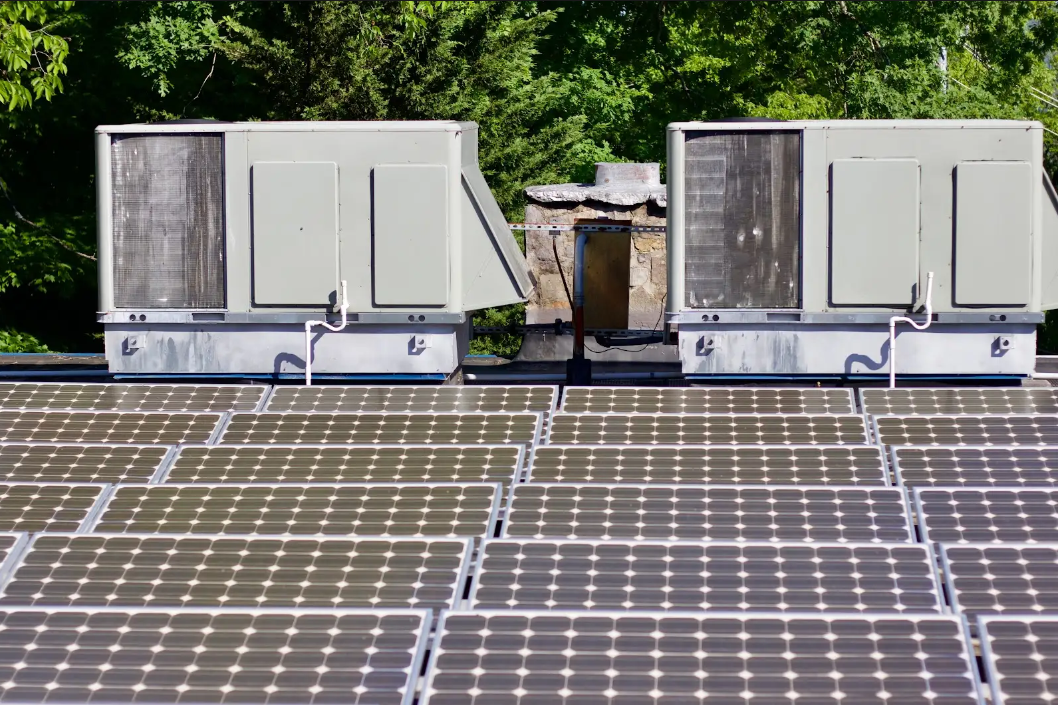
Heat pump technology has come a long way since its invention, consistently proving to be one of the most efficient and eco-friendly systems for heating and cooling homes and businesses. But like every technology, there is always room for improvement. Today, cutting-edge innovations in heat pump technology are not just enhancing system performance but are also addressing challenges related to energy efficiency, adaptability, and climate change. This article explores the latest developments in heat pump technology and how they are helping homeowners and businesses alike stay ahead.
The Internet of Things (IoT) has undoubtedly revolutionized how we interact with technology, and heat pumps are no exception. Modern heat pumps are now equipped with IoT-enabled sensors and smart controllers, allowing users to seamlessly monitor and adjust their systems using smartphones or voice assistants.
Gone are the days of manually tweaking thermostats. With smart heat pumps, you can schedule settings, receive maintenance alerts, and monitor energy usage in real-time. Advanced systems even predict performance issues and notify you when it's time for heat pump repair, making maintenance stress-free and proactive. IoT integration also helps users reduce energy waste by ensuring the heat pump operates at peak efficiency based on usage patterns and external weather conditions.
Traditional heat pumps have historically struggled with performance in colder climates. However, recent innovations have made it possible for heat pumps to thrive even in sub-zero temperatures. Manufacturers have developed all-climate heat pumps designed with advanced refrigerants, enhanced compressors, and sophisticated defrost systems that maintain efficiency no matter how cold it gets outside.
With features like variable-speed compressors and optimized heat exchangers, these systems deliver warmth on the coldest days while reducing reliance on auxiliary heating systems. These advancements promote sustainability and save homeowners significant energy bills. If you live in a colder region and worry about your current system giving out, this technology offers a compelling reason to consider an upgrade.
Refrigerants are a critical component of heat pumps, but they have also been a cause for concern because of their potential environmental impact. Older refrigerants like R-22 (Freon) have been phased out due to their harmful effects on the ozone layer. However, even more eco-conscious alternatives are emerging as the next step in heat pump technology.
New refrigerants such as R-32 and R-454B have lower global warming potential (GWP), making them less harmful to the environment. These refrigerants reduce carbon emissions and enhance heat pump efficiency, ensuring optimal performance while adhering to stricter environmental standards.
One of the fastest-growing trends in heat pump technology is the rise of hybrid systems. These systems combine the features of traditional heat pumps with complementary heating technologies like furnaces or boilers. These systems adapt dynamically to external temperature changes, switching between the most efficient energy sources based on demand.
Hybrid heat pumps are especially beneficial in regions with variable climates because they seamlessly transition between modes to deliver consistent comfort. For example, during milder weather, the heat pump provides all the heating needed. But if temperatures drop drastically, the system engages auxiliary heating to support the load. This adaptability optimizes energy usage and extends the heat pump's lifespan by reducing wear and tear during extreme conditions.
Renewable energy integration is taking heat pump technology to exciting new levels. Solar-powered heat pumps pair conventional heating and cooling capabilities with solar panel systems, enabling users to harness renewable energy to fuel their systems. By combining solar panels with heat pumps, homeowners and businesses can significantly reduce energy consumption and lower their carbon footprint while enjoying substantial energy savings. Advanced models include battery storage options, which allow excess solar energy to be stored and used later, making the system even more versatile and cost-effective.
One of the common complaints about older heat pumps has been noise. Whether it is a noticeable hum or the occasional mechanical rattle, these disturbances can be frustrating, particularly at night. Manufacturers have worked tirelessly to address this, and today’s heat pumps are quieter than ever.
Innovations include sound-dampening materials, improved compressor designs, and fan motor enhancements—all working together to reduce operational noise. Many of the latest models produce noise levels as low as 40 decibels, which is comparable to a quiet library. If your current system is noisier than you would like, it may be time to consult a technician for heat pump repair or replacement.
For homeowners, these innovations represent a significant opportunity to optimize energy usage, reduce repair frequencies, and improve overall quality of life. If your current system is underperforming, prone to breakdowns, or struggling with extreme temperatures, now is the time to explore these newer technologies.
Not sure where to start? Consider scheduling a consultation with an HVAC professional to assess whether your system needs an upgrade or just routine heat pump repair. These insights will help you make the most cost-effective and energy-efficient choice for your home.